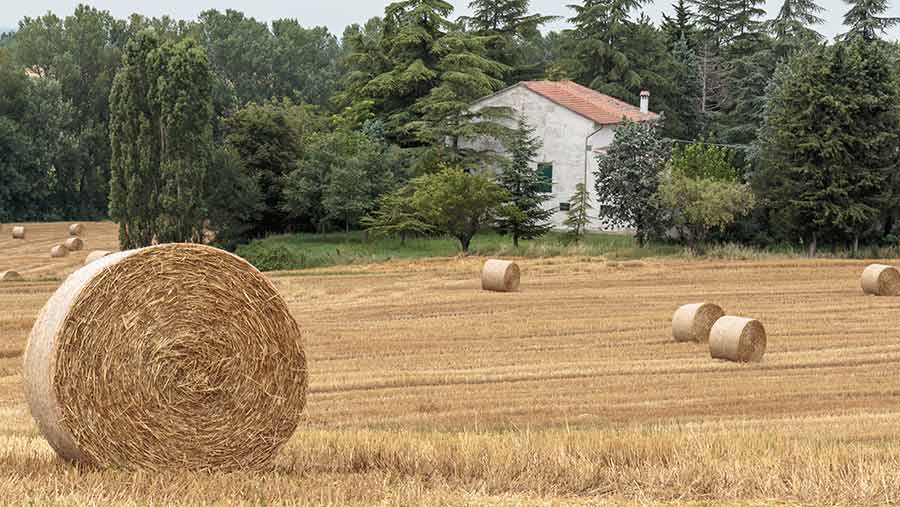Business Clinic: A tricky family farm ownership dispute
 Library picture © ING image
Library picture © ING image Whether it’s a legal, tax, insurance, management or land issue, Farmers Weekly’s experts can help.
Here, Russell Reeves of Thrings advises on a complex family farm situation.
Q. My wife and I added an extension to the family farmhouse. In principle, it’s a separate house, but planning restrictions mean it is classed as an extension.
At the time it was agreed with my grandmother to split the house up on her death to secure our assets, as the farm and main house would go into my father’s ownership (he is her only child).
See also: Business Clinic – advice needed on complex intestacy and farm sale situation
Despite getting an independent mediator in, my parents think I am bullying them into signing over the part of the house I built and paid for.
My concern is that the whole estate could be used for care costs should family members need care of some sort in the future.
I currently also farm the land in partnership with my wife and am trying to get a tenancy agreement with them to protect all the improvements and to be able to invest securely. Please advise.
A: At the heart of this query is the precise terms of the agreement you had with the owner of the farmhouse (presumably your grandmother alone) when you built the extension.
These terms may have been expressly agreed between you verbally or in writing, or may possibly be inferred. Evidence will be important.
It sounds as though you benefit from a “common intention constructive trust”.
Evidence
You would need to evidence there was a common intention with your grandmother that you should have a beneficial interest (that you own in full or in part the farmhouse or its extension).
If it is disputed that you had a common intention with your grandmother or the terms of your agreement were not clear enough, you could argue you are entitled to a remedy that compensates you under the doctrine of proprietary estoppel.
It is similar to a “common intention constructive trust”, but rather than you needing to demonstrate a “common intention” between you, you only need to demonstrate that your grandmother made a representation or assurance to you, such as that you will be “looked after”.
“Looked after” is not clear, as it might mean different things to different people, so the threshold is not as high as for a “common intention”.
Both tests also require you to prove you have acted to your detriment or significantly altered your position in reliance upon the common intention (or representation/assurance).
On the facts as you describe them, you have done so because you have paid for and built the extension (and presumably lived in it).
Judge’s discretion
With proprietary estoppel, a judge will have a wide discretion on the remedy he or she may grant you. They may decide your investment and management time (plus interest) should be paid back.
They could decide you are entitled to a share of the overall farmhouse and order it to be sold either now or on your father’s death. Your interest needs protecting at the Land Registry in the interim.
Strong case
My feeling, based on the evidence presented, is that you have a strong case.
You have paid a significant sum, which I suspect would lead the court to conclude there must have been a common intention or assurance or representation (otherwise why would you have invested the money and time?).
It may be argued that it was a gift, but depending on the figures (and your wealth), that might be considered rather kind and difficult to believe.
Wishing to protect your interest is not bullying. Legal disputes between farming families on the ownership of assets are becoming increasingly common, and you are sensible in wishing to protect your interest for the reasons you state.
In fact, if you do not protect your interest, you are potentially storing up more trouble later, which may become even more complicated if anyone involved loses capacity. The same applies to your partnership interest.
Separate planning issue
There is, in addition, a discrete planning issue here on the occupation of the extension and whether this amounts to the creation of a new independent dwelling.
The answer to that could have a material effect on valuation. You may also need to consider whether the occupation breaches any planning control.
This is a complex situation and both the law and procedure heavily depend on your specific facts. It is therefore recommended that you seek specialist independent legal advice to assess your situation.
Do you have a question for the panel?
Outline your legal, tax, finance, insurance or farm management question in no more than 350 words and Farmers Weekly will put it to a member of the panel. Please give as much information as possible.
Send your enquiry to Business Clinic, Farmers Weekly, RBI, Quadrant House, The Quadrant, Sutton, Surrey SM2 5AS.
You can also email your question to fwbusinessclinic@rbi.co.uk.

